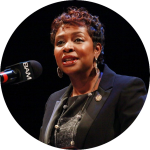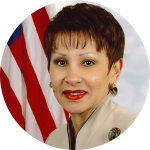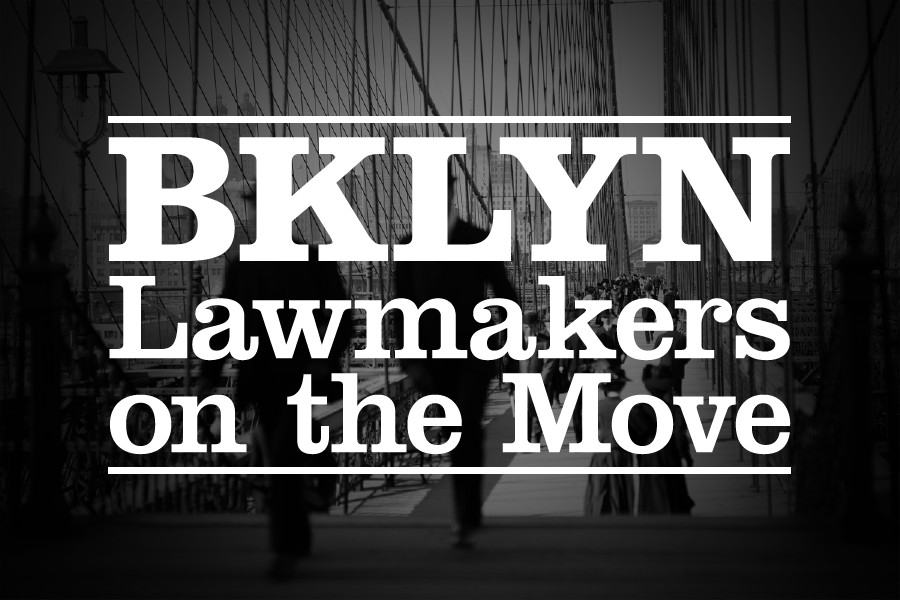Deutsch Voices Why he Voted No for Budget

City Councilman Chaim Deutsch (Sheepshead Bay, Manhattan Beach, Brighton Beach, Homecrest) spoke to why he voted against the $88.1 billion FY 2021 budget that the city approved two days ago.
“I voted AGAINST the budget, because I believe that our quality of life begins and ends with public safety. New Yorkers in every community deserve to feel safe, and should never have to be afraid to walk the streets of this city. I support our police department, and the diverse men and women who work every day to keep our city safe. They deserve better than the treatment that they are currently getting from many New Yorkers.
“The chaos that has ruled our streets for the last several weeks has been frightening for many. As Police Commissioner Dermot Shea said this week, ‘Our criminal justice system is imploding.’ Violent crime is increasing, and homicides are rising. I remember the crime wave of the late ’80s and early ’90s. We cannot tolerate a repeat of that.
“While I support the idea of making necessary budget cuts and investing into youth and communities of color, I felt that the budget presented last night went too far. My remarks from last night’s vote are shared below, and I am eager to hear your feedback on this matter,” he finished.
Bichotte Thanks the Mayor and Governor

Assemblywoman Rodneyse Bichotte (D-Flatbush, Ditmas Park) released a statement on why she thinks the billion-dollar cuts to the NYPD in the Fiscal 2021 budget was a good idea.
“The $1 billion in cuts to the NYPD represents significant changes for our city,” Bichotte said, praising the vote. “Some people are saying the cuts are not enough, calling them ‘cosmetic changes,’ but in fact, this budget targets areas of concerns, caused by systemic injustice.”
The FY21 budget negotiations lasted into the early morning and were some of the most charged in the council’s history. Under the new plan, the city’s operating budget will remain the same, but funds will be reallocated to fund summer youth programs, educational and social services, and housing initiatives.
“As a black woman, I can relate to the double standard, racial discrimination and injustices even in my leadership role as the party chair of Brooklyn,” Bichotte continued. “I am aware of the inequities within the NYPD. I understand the need to have safety in our community, but with a diverse police workforce that is sensitive to the makeup of that community.”
Rose Helps Pass Major Infrastructure Package

U.S. Rep. Max Rose (South Brooklyn, Staten Island) helped pass through the House of Representatives the Moving Forward Act, a comprehensive funding bill that will invest in transportation, water infrastructure, housing, and create millions of new jobs.
“I promised to do everything I can to end my constituents’ commuting nightmare and this is another step of many we are taking to get the job done,” Rose said. “Staten Islanders and South Brooklynites deserve lower tolls, better streets, subways that are actually on time, shorter commutes, and the assurance that their roads won’t flood every time it rains—and I won’t stop fighting until that’s a reality.”
The legislation, which passed with bipartisan support, includes nearly $500 billion in federal funding for surface and rail transit over five years, including over $23 billion in funding for New York—the third most of any state—which will help improve transit and end New Yorker’s commuting nightmares. The legislation also includes Rose’s proposal to allow toll revenues to be used for commuter discounts.
Clarke Legislation Expands Access to Electric Vehicles, Promotes Digital Equity

U.S. Rep. Yvette Clarke (D-Central, South Brooklyn), vice-chair of the House Energy & Commerce Committee, yesterday voted in favor of the comprehensive infrastructure “Moving Forward Act,” package which includes three of Clarke’s bills.
The more than $1.5 trillion plan to rebuild and modernize America’s infrastructure—not only for roads, bridges and transit systems, but also for schools, housing, clean energy, broadband connectivity and more.
Clarke’s sponsored legislation that are now a part of the legislation includes::
- The FREEZER Trucks Act of 2019 (H.R.5256) to reduce greenhouse gas emissions and air pollution from refrigerated trucks by establishing a pilot program to electrify refrigeration units on trucks that transport temperature-sensitive goods, and to support the construction of zero-emission charging infrastructure.
- The Electric Vehicles for Underserved Communities Act of 2020 (H.R.5751) to expand access to electric vehicle charging infrastructure in urban areas, particularly within low-income communities and communities of color, and to direct the Department of Energy to prioritize clean transportation needs and air quality improvement in underserved and disadvantaged communities.
- The Digital Equity Act of 2019 (H.R.4486) to establish a State Digital Equity Capacity Grant Program to make distributions to states based on their populations, demographics, and availability and adoption of broadband. The bill also establishes the Digital Equity Competitive Grant Program for supporting efforts to achieve digital equity, promote digital inclusion, and stimulate adoption of broadband.
“I am proud that several pieces of my legislation have been recognized by my colleagues as critical in addressing America’s infrastructure and that these have been included in the Moving Forward Act Infrastructure Package,” said Clarke.
“We know all too well from our experience dealing with the Coronavirus pandemic that the connections between air pollution, underlying health conditions and COVID-19 outcomes in Black and Brown communities are as clear as day. That’s why it’s vital that we implement strong policies that will invest in our communities, reduce greenhouse gas emissions and tackle air pollution,” the lawmaker added.
Velázquez Calls for Election Reforms

U.S. Rep. Nydia M. Velázquez (D-Brooklyn, Queens, Manhattan) yesterday wrote the New York City Board of Elections calling for the agency to take immediate steps to improve voting access and election procedures, following well-documented problems observed in New York’s June 23 primary election.
“Regardless of political party or who they support, every New Yorker deserves to have confidence that their election systems operate fairly and openly,” Velázquez said. “Unfortunately, in last week’s primary election we saw a slew of problems – from voters not receiving requested absentee ballots to polling places opening late. With the general election just around the corner, the Board needs to act swiftly, prevent these problems from recurring and help restore voters’ trust.”
In 2015, a purge of 120,000 Brooklyn voters disproportionately impacted New York’s 7th Congressional District, which Velázquez represents. The Department of Justice determined that the Board had violated federal law in removing those voters from the rolls.
Kavanagh, Cymbrowitz Announce Expanded COVID-19 Emergency Rental Assistance Program Legislation


State Sen. Brian Kavanagh (D-Northern Brooklyn, Lower Manhattan) and Assemblymember Steven Cymbrowitz (D-Sheepshead Bay, Manhattan Beach, Brighton Beach), Chairs of the Senate and Assembly Housing Committees, yesterday introduced amendments to their legislation to create a COVID-19 Emergency Rental Assistance Program (S8140B / A10248A).
The amendments would enhance the program to prioritize those with the greatest need, including those who experience homelessness or are at imminent risk of eviction during the COVID-19 public health and economic crisis, while maintaining broad eligibility to cover many other New Yorkers who are having difficulty paying their rent and would not normally qualify for housing subsidies.
“The program we are proposing would protect New Yorkers who are in the especially precarious position of being homeless during the COVID-19 pandemic, as well as the many thousands of people who are in danger of being displaced from their homes or enduring long periods of housing instability and financial hardship as they struggle to pay rent. We need both a substantial infusion of federal funds and a well-designed program that is tailored to the needs in our state and ensures that we will be able to get assistance into people’s hands expeditiously once the funds are available,” said Kavanagh.
“The Emergency Rent Relief Act was designed to start the flow of limited resources already available to the State while we fight to secure the funding necessary for a more comprehensive program — one that can meet the enormous financial challenges being faced by tenants and landlords while helping to keep New Yorkers safely at home,” said Cymbrowitz.
“These amendments will help ensure that the COVID-19 Emergency Rental Assistance Program can do just that, by prioritizing those with the greatest need, including families and individuals who are homeless or at risk of homelessness,” he added.






